“This blog explores the significance of diversity and inclusion in the manufacturing industry, highlighting how it drives innovation, problem-solving, and financial success. It emphasizes the pivotal role of recruitment agencies in promoting a diverse workforce and reducing unconscious bias. The blog underscores the economic and societal benefits of embracing diversity in manufacturing, aligning it with business growth and competitive advantage. It also addresses the urgent need for inclusive hiring practices to tackle the upcoming challenges in the sector. “
Diversity and inclusion in the manufacturing industry encompass a broad range of dimensions, including gender, ethnicity, age, disability, sexual orientation, and cultural backgrounds. The role of embracing diversity in this sector is crucial, leading to improved innovation, problem-solving, and financial performance. A diverse workforce in manufacturing brings unique perspectives and ideas, fostering a more inclusive and creative environment.
According to a Deloitte and The Manufacturing Institute report, the U.S. manufacturing sector is projected to face a significant challenge with 2.1 million unfilled jobs by 2030. This highlights the importance of diversity and inclusion strategies in manufacturing recruitment. The report also underscores the importance of creating pathways to future jobs and the economic impact of protracted job vacancies. Therefore, promoting diversity and inclusion in the manufacturing industry aligns not only with societal values but is also a key driver for innovation, problem-solving, and enhanced financial performance.
Maximizing potential: The multifaceted benefits of diversity in manufacturing
Why is diversity important in the workplace?
Manufacturing companies must foster an inclusive culture, invest in diverse talent, and implement best practices that promote diversity and inclusion in the workplace to harness its multiple benefits, as listed below:
- Enhanced innovation and problem-solving: In the manufacturing industry, diversity is a catalyst for innovation. When individuals from varied backgrounds, perspectives, and approaches collaborate, it boosts creativity and innovation in manufacturing processes. Diversity of thought is crucial for developing new solutions to improve the manufacturing workflow.
- Improved financial performance: Research consistently shows that diverse workforces have a direct positive impact on financial outcomes. Companies prioritizing gender and ethnic diversity are notably more profitable—gender-diverse companies are 25% more likely to achieve above-average profitability, while those with ethnic diversity see a 35% increase in profitability. This indicates the economic value of diversity in manufacturing settings.
- Better decision-making and increased productivity: Team diversity improves decision-making abilities and productivity. Leveraging varied experiences and perspectives leads to more accurate and effective decisions, directly boosting productivity in manufacturing operations.
- High customer satisfaction: A diverse manufacturing workforce is adept at understanding and meeting the needs of a varied customer base, enhancing customer satisfaction and loyalty. With customer bases diversifying rapidly today amid globalization, only a diverse team that understands and connects with the varying sentiments of customers, can cater to them effectively.
- Improved talent attraction and retention: Inclusion and diversity are key factors in attracting and retaining top talent in the manufacturing sector. Creating an environment that values diversity can help manufacturers better manage their workforce, maintain a competitive edge, and ensure long-term sustainability.
- Boosting reputation: A company that embraces diversity and inclusion earns the goodwill of all stakeholders: customers, investors, and prospective partners. A strong reputation for inclusivity can be a significant differentiator in the competitive manufacturing industry.
Navigating the complex terrain: Key challenges in achieving workforce diversity in manufacturing
Over 90% of companies acknowledge the importance of D&I for their business, yet more than one-third report struggling with D&I issues. This indicates a gap between the recognition of D&I’s importance and the effective implementation of D&I strategies.
In exploring the multifaceted challenges of workforce diversity in the manufacturing industry, several authoritative sources provide invaluable insights. These include The ManpowerGroup, a global leader in workforce solutions; Diversio, a platform dedicated to enhancing workplace diversity, equity, and inclusion; IndustryWeek, a prominent publication in the manufacturing industry; and The Manufacturing Institute, known for its expertise in developing world-class manufacturing talent.
Let’s look at the challenges:
- Leadership support for diversity, equity, inclusion, and belonging (DEIB) initiatives: Many organizations struggle with insufficient support from company leadership in expanding the diversity of their staff. About 26% of organizations report a lack of leadership support for diversity efforts. Leaders often face competing priorities or are hesitant in stepping out of their comfort zone to build relationships with underrepresented groups.
- Unconscious biases: Unconscious biases such as racism, sexism, and ageism can inhibit diversity, especially during recruitment and career advancement discussions. These biases can lead to unintentional discrimination and negatively affect an organization’s culture.
- Attracting diverse job candidates: One of the major challenges is the failure to attract a diverse range of talent. Nearly one-third of employees and job seekers state they would not apply to a company lacking workforce diversity.
- Male-dominated landscape: The manufacturing sector has historically been male-dominated, leading to a skewed gender ratio that can stifle diversity and result in a homogenized perspective.
- Workplace cultural issues: Even when diverse talent is present, the workplace culture in manufacturing can sometimes be unwelcoming, with microaggressions and biases in decision-making that erode the sense of belonging and decrease morale.
- Recruitment and retention hurdles: Traditional recruitment methods and biased job descriptions can deter potential candidates from diverse backgrounds. Retaining diverse talent requires an environment where they feel valued and see a clear path for growth.
- Diversity in leadership: A lack of diverse representation in leadership roles in manufacturing can lead to missed opportunities in strategy and innovation. It also affects the morale of diverse individuals at lower levels, who might feel a lack of upward mobility within the organization.
- Closing the gender gap: The gender gap is a significant issue in manufacturing, with women holding just 33% of entry-level roles in the engineering and industrial manufacturing sectors, and only 16% of corporate positions. This gap is detrimental to operational success and innovation. It indicates the need for increasing female participation in manufacturing, which can also influence societal attitudes towards the industry. Women in leadership positions can act as role models and inspire young women to pursue careers in science, technology, engineering and math (STEM) fields.
Blueprint for inclusion: Transformative strategies for diversity and inclusion in manufacturing
In the dynamic landscape of modern manufacturing, the integration of DEIB into business strategies is increasingly recognized as a key differentiator for growth and resilience. As noted by ManpowerGroup, while the majority of organizations (92%) acknowledge the benefits of a diverse workforce, only a fraction (19%) have successfully integrated diversity into their current structures. This gap highlights the crucial need for effective DEIB strategies in manufacturing, particularly in the face of economic uncertainties and rapid changes in the industry. Effective implementation of these strategies, however, is not without its challenges. As the industry evolves, so too must the approach to fostering a diverse and inclusive workforce. The upcoming section delves into practical and impactful strategies that manufacturing firms can adopt to build inclusive cultures, drawing from a range of expert insights and industry best practices.
- Top-down approach to diversity and inclusion: For successful diversity and inclusion initiatives, it’s crucial that company leaders understand and support these programs. Research shows that companies with CEOs who set a diversity strategy and communicate progress are more likely to have diverse leadership and be industry leaders. Commitment from C-level employees is essential, and some companies have established diversity task forces or Chief Diversity Officers.
- Mitigating unconscious biases: It’s important for companies to educate their employees on recognizing and addressing both explicit and implicit biases in the workplace. Unconscious bias training, as well as steps like removing names from resumes and applications, are effective strategies to reduce workplace bias.
- Upskilling and cross-training opportunities: Providing upskilling and cross-training opportunities to all employees, including entry-level and frontline workers, is key. This not only fosters employee loyalty but also creates a pipeline for internal advancement, especially in an industry where technology advances rapidly.
- Measuring the results of diversity and inclusion programs: Companies need to consistently measure and evaluate the results of their diversity and inclusion initiatives, using both objective and subjective markers of progress, such as changes in hiring and retention rates for diverse workers and employee surveys.
- Revamping recruitment strategies: Companies could revisit existing hiring strategies. For instance, adopting an inclusive approach in recruitment would include using AI-driven tools for unbiased application processing, and reaching out to diverse communities are critical steps in fostering diversity.
Or companies could consider hiring manufacturing recruiting agencies for diverse talent. Post-pandemic changes have escalated the demand for trained professionals, making the role of recruitment agencies like VBeyond crucial. These agencies employ global talent acquisition experts who specialize in identifying industry-specific talent that meets the evolving needs of manufacturing organizations. Their in-depth understanding of the manufacturing sector, combined with insights on the talent market, enables them to efficiently find the right fit for companies. Moreover, a key focus for these agencies is on fostering diversity, ensuring that the recruitment process engages a diverse candidate pool to build inclusive cultures within organizations.
- Continuous DEI training: Regular training sessions help employees recognize unconscious biases and understand the value of a diverse workplace. These should be an ongoing effort to deeply embed DEI principles in the company culture.
- Mentorship and sponsorship programs: Implementing mentorship programs for newcomers from diverse backgrounds, paired with seasoned professionals, ensures smoother integration and skill development. This can evolve into sponsorship, where senior professionals advocate for their protégés.
- Inclusive regulatory policies: Developing and implementing policies that champion inclusivity at all levels is crucial. These policies should be clear, actionable, and regularly reviewed to align with the workforce’s evolving needs.
- Open communication channels: Establishing channels for employees to voice concerns and provide feedback on DEI matters ensures that every voice is heard, leading to meaningful organizational change.
- Celebrating diversity through events and workshops: Organizing events and workshops that focus on cross-cultural communication, understanding different perspectives, and celebrating diversity helps in creating a cohesive and inclusive environment.
- Enhancing women’s participation in manufacturing: To increase women’s participation in the manufacturing workforce, a multifaceted approach is essential. It begins with encouraging women to pursue relevant education and training, supported by scholarships and partnerships with educational institutions. Mentorship programs and networking events can provide valuable support and guidance. Adopting family-friendly workplace policies, such as flexible hours, maternity leave, and childcare support, makes the sector more accessible to women, especially those with familial responsibilities. Recruitment practices should be inclusive, utilizing gender-neutral language in job postings and anonymizing applications to reduce bias. Cultivating a workplace culture that values diversity and has a zero-tolerance policy towards discrimination is crucial. Visibility of successful women in manufacturing roles, through internal and external communications, can serve as inspiration and demonstrate the company’s commitment to diversity. Additionally, partnerships with organizations focused on increasing women’s workforce participation can extend reach and effectiveness. Providing clear career advancement pathways and professional development opportunities within the company is also key to retaining and promoting women in the manufacturing sector.
Recruitment agencies: Key players in promoting diversity and inclusion in manufacturing
Insights shared by recruiting platforms, such as US-based Gem, and other credible sources including HR companies, shed light on the multifaceted approaches and the critical impact of recruitment agencies in shaping a more diverse and inclusive manufacturing workforce.
- Strategic imperative of promoting diversity: In today’s globalized world, promoting diversity in the workplace is a strategic imperative, not just an ethical consideration. Companies embracing diversity see benefits like increased innovation and improved employee morale. Staffing agencies play a crucial role in this process by acting as intermediaries between employers and a diverse talent pool, thereby enhancing organizational growth.
- Unbiased selection and inclusive hiring expertise: Staffing agencies bring an unbiased approach to candidate evaluation, focusing on skills and qualifications rather than personal biases. This impartiality ensures fair consideration for underrepresented candidates.
Additionally, many staffing agencies specialize in inclusive hiring practices, adept at tailoring candidate searches to meet companies’ diversity needs.
- Diverse candidate pools and reduced hiring bias: By cultivating diverse candidate pools, staffing agencies assist in matching the right candidates to organizations seeking varied backgrounds and perspectives. They also play a role in mitigating unconscious biases in hiring decisions.
- Cultural fit assessment and diversity metrics: Staffing agencies assess a candidate’s cultural fit with a company, ensuring alignment with organizational values and goals. They also help companies track diversity metrics, enabling them to measure and adjust the effectiveness of their diversity initiatives.
- Collaborative approach with customized strategies: Staffing agencies collaborate closely with organizations to understand their diversity goals and tailor recruitment strategies. This collaboration often involves designing customized strategies, providing education and training on inclusive hiring, and promoting continuous improvement in diversity recruitment.
- Diverse leadership search and retention strategies: These agencies assist in identifying candidates for leadership positions from underrepresented groups and work with organizations to implement strategies that maintain inclusivity beyond the hiring stage, ensuring sustainable diversity initiatives.
- Innovation and employee engagement: Staffing agencies, given their expertise and reach, specialize in building diverse teams. Multiple perspectives help drive innovation and contribute to problem-solving. This leads to improved employee engagement, higher morale, and increased productivity.
- Compliance and legal adherence: Staffing agencies ensure compliance with diversity and anti-discrimination laws, minimizing legal risks for businesses. Their expertise and commitment to unbiased selection make them invaluable partners in creating inclusive work environments.
Conclusion
Embracing diversity in manufacturing is crucial for fostering innovation and mirroring the global market.
Recruitment agencies are instrumental in this process, offering specialized skills in identifying diverse talent and implementing inclusive hiring practices. Their expertise in reducing unconscious biases contributes significantly to organizational growth and innovation, paving the way for the multiple benefits of diversity. Therefore, leveraging the services of recruitment agencies is a strategic move for any entity seeking to build diversity in manufacturing.


